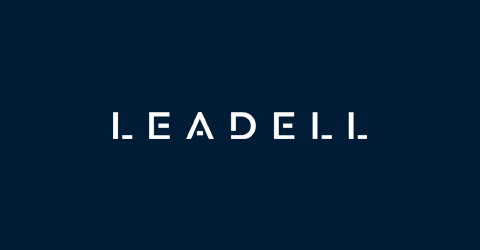Best Cyber Law, Data Privacy and Data Protection Lawyers in Vilnius
Share your needs with us, get contacted by law firms.
Free. Takes 2 min.
List of the best lawyers in Vilnius, Republic of Lithuania
About Cyber Law, Data Privacy and Data Protection Law in Vilnius, Republic of Lithuania
Cyber law, data privacy, and data protection in Vilnius, Republic of Lithuania, constitute a crucial legal domain, especially in the current digital era. Lithuania, as a member of the European Union (EU), adheres to the General Data Protection Regulation (GDPR), which is the main legislation governing data protection and privacy in the EU. This means that any entity operating within Lithuania must comply with strict rules on how personal data is collected, used, and shared. In addition to GDPR, Lithuania has its own national laws and regulations that address various aspects of cyber security and data protection, ensuring that personal data of individuals are safeguarded against misuse and breaches.
Why You May Need a Lawyer
There are various situations where legal expertise in cyber law, data privacy, and data protection may be necessary. For example:
- If your business handles personal data of EU citizens and you need to ensure compliance with GDPR and Lithuanian data protection laws.
- If you or your company are facing a data breach and require guidance on legal obligations, including notification and dispute resolution.
- If you are involved in a legal dispute regarding unauthorized access to or misuse of personal data.
- If you need to develop a data protection strategy and ensure that your internal policies align with current legal requirements.
- If you require advice on risk management and cyber security best practices.
Local Laws Overview
In Lithuania, the Law on Legal Protection of Personal Data complements GDPR and stipulates specific national provisions concerning data protection. It outlines the responsibilities of data controllers and processors, establishes the rights of data subjects, and sets guidelines for data transfer. The State Data Protection Inspectorate is the main body responsible for enforcing these laws in Lithuania.
Additionally, the Law on Cyber Security establishes a framework for protecting national information infrastructure, enhancing cyber security measures, and regulating incident reporting. Lithuania also follows EU directives on network and information security and electronic communications privacy.
Frequently Asked Questions
What is personal data under Lithuanian law?
Personal data refers to any information related to an identified or identifiable natural person, such as name, address, email, and IP address.
What are the main principles of GDPR that apply in Lithuania?
The main principles include lawfulness, fairness and transparency, purpose limitation, data minimization, accuracy, storage limitation, integrity and confidentiality, and accountability.
When is consent required for data processing?
Consent must be freely given, specific, informed, and unambiguous. It may not always be required if data processing is based on other lawful criteria, such as a legal obligation or a legitimate interest.
What should I do if my company experiences a data breach?
You must assess whether the breach poses a risk to individuals' rights and freedoms. If it does, you need to notify the relevant supervisory authority within 72 hours and possibly inform affected individuals.
How can I transfer data outside the European Economic Area (EEA) legally?
Data can be transferred outside the EEA if the receiving country offers an adequate level of data protection or by using mechanisms like Standard Contractual Clauses approved by the European Commission.
What rights do data subjects have in Lithuania?
Data subjects have the right to access, rectify, erase (right to be forgotten), restrict processing, data portability, object to processing, and not be subject to automated decision-making.
How does the Lithuanian government enforce data protection laws?
The State Data Protection Inspectorate ensures compliance, conducts investigations, and can impose fines and sanctions for breaches of data protection laws.
What is the role of the Data Protection Officer (DPO)?
A DPO monitors compliance, manages data protection activities, provides training, and serves as a contact point for data subjects and supervisory authorities.
Can individuals claim compensation for data protection breaches?
Yes, individuals harmed by a breach of data protection laws can seek compensation for material or non-material damages through court proceedings.
What legal remedies are available if I suspect a violation of my data protection rights?
You can file a complaint with the State Data Protection Inspectorate or pursue legal action through the courts.
Additional Resources
For further assistance, individuals and organizations can reach out to:
- The State Data Protection Inspectorate, which provides guidelines and resources on data protection and privacy.
- Local cyber security consultancies that offer specialized services in data protection compliance and risk assessment.
- Professional legal associations and law firms in Vilnius with expertise in cyber law and data privacy.
Next Steps
If you need legal assistance in cyber law, data privacy, and data protection, consider the following steps:
- Identify the specific issues or questions you have regarding your data handling practices or compliance needs.
- Consult with a qualified lawyer or legal expert in Vilnius who specializes in data protection laws to discuss your case.
- Prepare all relevant documentation and information related to your situation for a comprehensive legal assessment.
- Follow recommended legal advice and implement suggested measures to mitigate risks and ensure compliance with local and EU regulations.
Lawzana helps you find the best lawyers and law firms in Vilnius through a curated and pre-screened list of qualified legal professionals. Our platform offers rankings and detailed profiles of attorneys and law firms, allowing you to compare based on practice areas, including Cyber Law, Data Privacy and Data Protection, experience, and client feedback.
Each profile includes a description of the firm's areas of practice, client reviews, team members and partners, year of establishment, spoken languages, office locations, contact information, social media presence, and any published articles or resources. Most firms on our platform speak English and are experienced in both local and international legal matters.
Get a quote from top-rated law firms in Vilnius, Republic of Lithuania — quickly, securely, and without unnecessary hassle.
Disclaimer:
The information provided on this page is for general informational purposes only and does not constitute legal advice. While we strive to ensure the accuracy and relevance of the content, legal information may change over time, and interpretations of the law can vary. You should always consult with a qualified legal professional for advice specific to your situation.
We disclaim all liability for actions taken or not taken based on the content of this page. If you believe any information is incorrect or outdated, please contact us, and we will review and update it where appropriate.














